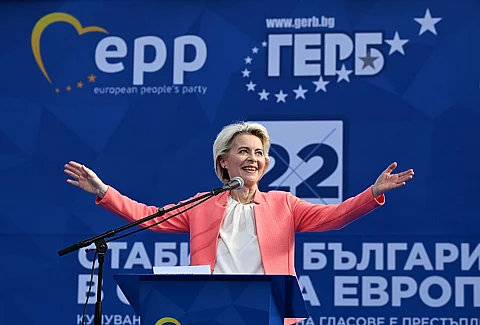

The European Union has unveiled a new strategic partnership with Central Asian nations following a historic two-day summit in Samarkand, Uzbekistan. The meeting—the first of its kind—brought together European Council President António Costa, European Commission President Ursula von der Leyen, and the leaders of Kazakhstan, Kyrgyzstan, Tajikistan, Turkmenistan, and Uzbekistan.
The summit took place against a backdrop of geopolitical and economic turbulence, coming just a day after U.S. President Donald Trump announced sweeping global trade tariffs targeting allies, including the EU and the UK—a move that rattled markets and drew international criticism.
Marking 30 years of diplomatic relations, Costa underscored the importance of a rules-based global order.
"In today’s international context, the importance of a functioning, rules-based multilateral system cannot be overstated," he said. "This summit reinforces our shared commitment to peace and prosperity through deeper EU-Central Asia cooperation in multilateral forums."
He also highlighted shared security challenges, including terrorism, violent extremism, and drug trafficking, warning of spillover risks for both regions.
Von der Leyen outlined the economic potential of stronger EU-Central Asia ties, emphasizing the region’s strategic role in global trade and investment.
"Your location can unlock new trade routes and investment flows," she said. "These investments will enhance sovereignty, strengthen economies, and forge new partnerships."
She announced a €12 billion EU investment package aimed at key sectors:
Transport (€3 billion)
Critical raw materials (€2.5 billion)
Water, energy, and climate (€6.4 billion)
Digital connectivity (additional funding via the EBRD)
The funding, part of a "Team Europe" approach combining EU and member-state contributions, is expected to boost energy, tourism, trade, and infrastructure projects.
The EU’s push for closer ties comes as it seeks to reduce reliance on China for critical raw materials—such as lithium, manganese, and chromium—essential for renewable energy, technology, and defense. Central Asia holds significant deposits, including 38.6% of the world’s manganese and 30% of chromium.
"These resources are the lifeblood of the future economy," von der Leyen said. "But while some seek only to extract them, Europe offers partnership in local industrial development—ensuring value stays in the region."
The partnership aligns with the EU’s 2050 climate neutrality goals and its strategy to secure sustainable supply chains. With this agreement, both regions aim to open a new chapter in their long-standing relationship.